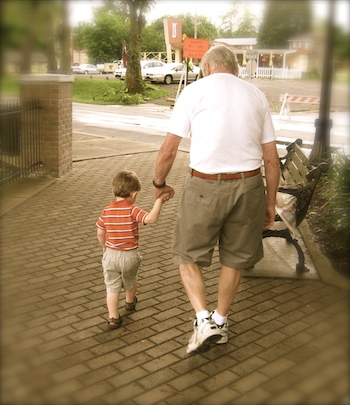 I’ve known for some time that I wanted to write this newsletter. Three years perhaps. I had to wait until my rage against Charlie had faded.
I’ve known for some time that I wanted to write this newsletter. Three years perhaps. I had to wait until my rage against Charlie had faded.To be clear, Charlie is a lovely man. Every time I’ve seen him, I’ve smiled, said “Hey Charlie,” and tried to send warm thoughts his way. No part of me dislikes him, is angry with him, or wishes him any ill will.
But there’s been some rage.
Charlie is my neighbor. He’s 86. Tall. White hair. Deep voice. Crooked smile that’s contagious. Memorable gait. He walks up and down the street and all over the neighborhood, twice a day: once around 11:00 a.m. and again around 7:00 p.m. He and his wife live about 8 houses away on the corner of the street that intersects mine. They’ve lived in that home for something like 60 years. It’s well kept. He still drives. He’s got all his faculties and appears to be in great health.
I started noticing Charlie shortly after we moved to this neighborhood nine years ago, during that time in my life when I first started to notice old people. Old people are very easy to not notice until you have people in your life who didn’t used to be old, but are now. Once that filter is in place, old people spill out of the cracks of society. They’re everywhere. And you notice how healthy they are, how mentally with it they are, and what kind of life they seem to have. I became an expert at judging all of this in mere seconds.
I could tell right away that Charlie had a good life. And I was very happy for him.
I just wasn’t happy for me.
Charlie represented something that wasn’t fair. He got to be spry and jovial and walking around with complete awareness in his 80s, and my dad didn’t get to be any of those things (that’s my dad above, holding hands with my little one, circa 2010). It started as jealousy. The more my dad declined and lost his mind, eventually going into a nursing home the final few months of his life, the more I saw Charlie. It didn’t gather itself up into rage until my dad passed away two years ago. My dad was dead and Charlie was still walking up and down the street with the same gait: one hip slightly higher than the other, arms curved at his sides. He was two years older than my dad and a world apart from him.
It. Wasn’t. Fair.
Hence, rage.
The flip side of my rage was that I had a sick fascination with Charlie. Often, we’d talk for a minute or two when I was outside with the kids or watering the garden. “Can you believe this great weather, Charlie?” I’d ask and we’d chat briefly. Every conversation and observation was an investigation into why he got to be Charlie and my dad didn’t.
Couldn’t I get my head out of my butt and be happy for Charlie, you’re thinking? Life isn’t fair, Judi. Didn’t you get the memo? You are so ridiculously spoiled and lacking perspective on the awful tragedies that other humans are facing. Grow up!
I thought all of those things. And I was happy for Charlie, of course. I’m a decent and loving human under all my stupidness.
But no matter, you can’t simply will an emotion away. It has to leave on its own accord.
Luckily, for me, rage is hard to sustain. I knew it would fade with time. I trusted that it would, so I didn’t beat myself up about feeling it. I let myself feel every unreasonable ounce of it for as long as I needed to.
A few weeks ago, my mom was over for dinner. She’s going to be 80 next month. She’s everything Charlie is, and you better believe that I count my blessings about her health every day.
Anyway, we were out walking after dinner, and we passed by Charlie. “Hi Charlie!” I said. We talked for a minute about the weather and my kids, who were nearby on bikes.
“That’s Charlie,” I told my mom after he had passed. “He walks all the time.”
And then we moved on to a different subject. It’s not that I forgot all the feelings Charlie used to bring up in me. But in that moment, I realized they weren’t relevant anymore. They weren’t present. Nothing much was present around seeing Charlie, other than general human interest. Huh, I thought to myself. Well look at that, it’s gone.
My rage had left on its own accord.
If you’ve seen the Pixar movie Inside Out (and you should, regardless of whether or not you have kids to bring to the theater with you—it’s that good), you know there’s a great scene where the characters that represent Riley’s emotions inside of her brain are trying to “pry” out a bad idea. They can’t do it, no matter how hard they try. It takes the right combination of things, and then it just loosens itself.
It all sounds a bit passive, I know: wait patiently for uncomfortable and unreasonable thoughts to fade. But there is an active component, too. You have to actively believe that whatever it is will fade and keep the tension on it—similar to the way you balance the clutch and the gas at the top of a hill. You’re not moving forward, you’re not rolling back. You’re just there.
So be there. As crappy as it is. Be there, be present, and wait. It will fade.

